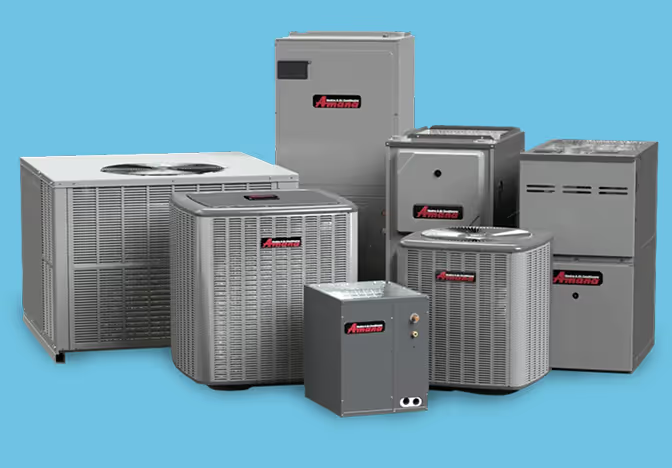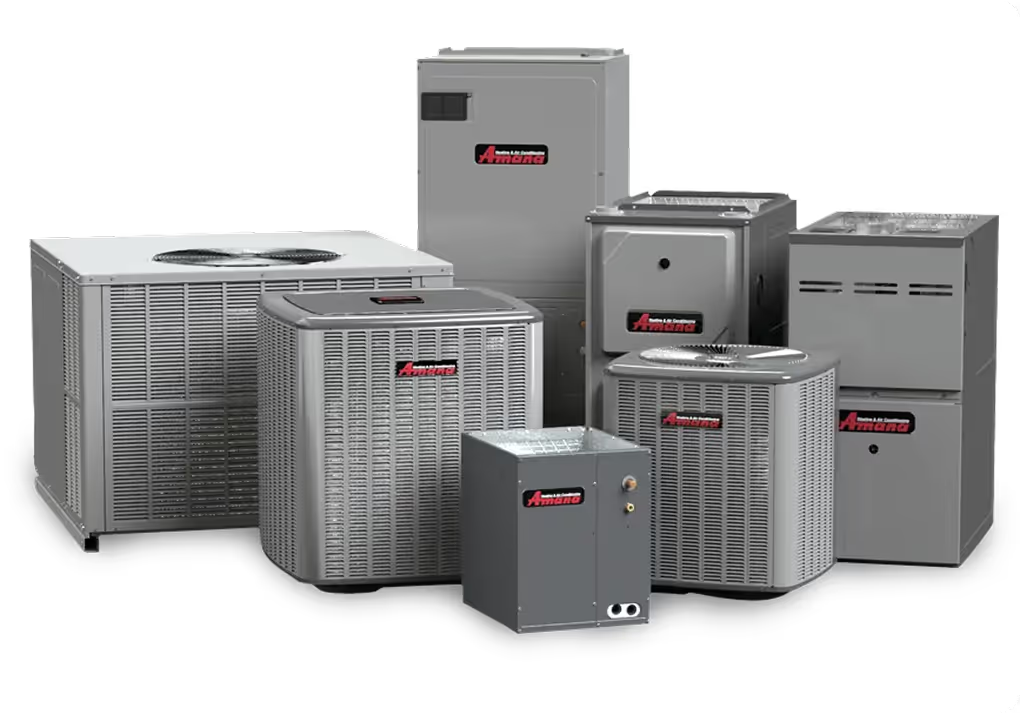Mini Split Replacement in Four Oaks, NC
When your home's comfort system falters, a mini split replacement offers an efficient solution for Four Oaks, NC homeowners seeking reliable heating and cooling. Key indicators for replacement include unit age (10-15 years), frequent costly repairs, declining performance, rising energy bills, and outdated refrigerants. Proper system sizing is crucial; undersized units struggle, while oversized ones short-cycle. Selecting the right BTU and SEER rating ensures optimal performance and energy savings. Professional installation by certified technicians is vital for system integrity, compliance, and warranty validity, covering correct refrigerant handling, electrical requirements, and multi-zone configurations. Understanding manufacturer and installation warranties provides long-term assurance. Regular maintenance, including filter cleaning and annual tune-ups, is essential for continued efficiency and reliability.
.jpeg)
Mini Split Replacement in Four Oaks, NC
When your home's comfort system begins to falter, a mini split replacement can be a highly effective solution, particularly for homeowners in Four Oaks, NC seeking efficient and adaptable heating and cooling. This service is designed to seamlessly transition your property to a new, high-performance mini split system, ensuring sustained comfort and energy savings. Understanding the intricate aspects of this process is crucial for making an informed decision.
Determining the Need for Mini Split Replacement
Recognizing the opportune moment for a mini split replacement is key to preventing further issues and maximizing efficiency. Several factors typically indicate that a replacement may be more beneficial than continued repairs:
- Age of the Unit: Most mini split systems have an average lifespan of 10 to 15 years. As units approach or exceed this age, their components naturally wear down, leading to decreased efficiency and an increased likelihood of breakdowns.
- Frequent or Costly Repairs: If your existing mini split system requires constant repairs, or if a single repair estimate approaches half the cost of a new unit, investing in a replacement often proves more economical in the long run.
- Declining Performance: A noticeable reduction in cooling or heating capacity, uneven temperature distribution, or the unit running constantly without reaching the desired thermostat setting are clear indicators of a system struggling to perform its function.
- Rising Energy Bills: An old or inefficient mini split system may consume significantly more energy to maintain desired temperatures. If you observe a steady increase in your utility bills without a corresponding change in usage patterns, the system's efficiency may be compromised.
- Outdated Refrigerant: Older mini split systems might use refrigerants that are being phased out due to environmental concerns, such as R-22. Replacing such a system ensures compliance with current environmental regulations and access to more environmentally friendly and efficient refrigerants.
Load Sizing and Equipment Selection for Optimal Performance
Accurate load sizing and precise equipment selection are fundamental to the success and efficiency of any mini split replacement. This involves a detailed assessment of your property to ensure the new system is perfectly matched to your heating and cooling requirements.
- BTU Sizing (British Thermal Units): BTUs measure a system's cooling and heating capacity. An incorrectly sized unit will lead to inefficiency and discomfort.
- Undersized Unit: An undersized mini split will struggle to adequately cool or heat your space, running continuously and failing to reach the desired temperature. This leads to excessive energy consumption and accelerated wear on the system.
- Oversized Unit: Conversely, an oversized unit will cool or heat too quickly, leading to frequent on/off cycles (short-cycling). Short-cycling wastes energy, creates inconsistent temperatures (hot and cold spots), and does not allow the system to dehumidify effectively, which is particularly important in the climate of Four Oaks, NC.
- Determination Factors: Proper BTU sizing considers various elements, including the square footage of the area to be conditioned, ceiling height, insulation levels, number and type of windows, sun exposure, number of occupants, and internal heat sources from appliances.
- SEER (Seasonal Energy Efficiency Ratio) Rating: SEER is a measure of a mini split's cooling efficiency over an entire season. A higher SEER rating indicates greater energy efficiency, translating directly into lower operating costs.
- Understanding SEER: The SEER rating is calculated by dividing the cooling output during a typical cooling season by the total electric energy input during the same period.
- Benefits of Higher SEER: While units with higher SEER ratings may have a greater initial cost, the long-term energy savings often offset this investment, providing significant financial benefits over the life of the system.
- Current Standards: Modern mini splits typically have SEER ratings ranging from 15 to over 30. Selecting a unit that balances upfront cost with long-term energy efficiency is a key consideration for homeowners in Four Oaks, NC.
Professional Installation by Qualified Technicians
The expertise of qualified technicians during mini split replacement is paramount to the system's longevity, efficiency, and adherence to manufacturer warranties. This is not a task for amateur installation, as precise technical knowledge and specialized tools are required.
- Expertise in System Integration: Qualified technicians possess the in-depth knowledge necessary to properly integrate the indoor air handling units with the outdoor compressor unit, ensuring correct piping, electrical connections, and drainage.
- Compliance and Safety: Professional installers are well-versed in local building codes and safety regulations in Four Oaks, NC. This ensures that all electrical work, mounting procedures, and refrigerant handling are performed to the highest safety standards, protecting both your property and its occupants.
- System Calibration and Testing: After installation, qualified technicians meticulously calibrate and test the entire system, verifying correct refrigerant levels, airflow, and operational parameters to guarantee optimal performance from day one. This critical step prevents potential issues that could arise from improper setup.
Refrigerant Handling and Environmental Responsibility
Refrigerant is a critical component of any mini split system, and its handling requires specialized care and adherence to strict environmental regulations.
- Environmental Regulations: Refrigerants are potent greenhouse gases, and their release into the atmosphere is strictly regulated. Technicians must be certified to handle refrigerants, ensuring proper recovery, recycling, and disposal procedures are followed to minimize environmental impact.
- System Integrity: Correct refrigerant charge is vital for system efficiency. An undercharged or overcharged system will not operate optimally, leading to decreased performance and potential damage to the compressor. Professional technicians use precise gauges and equipment to ensure the exact refrigerant charge specified by the manufacturer.
- Leak Detection and Repair: During replacement, technicians are trained to identify and repair any potential refrigerant leaks, which can compromise system performance and contribute to environmental harm.
Electrical Requirements and Safety
Mini split systems require specific electrical considerations to operate safely and efficiently. Proper electrical setup is a non-negotiable aspect of professional installation.
- Dedicated Circuits: Most mini split outdoor units and sometimes even multiple indoor units require dedicated electrical circuits. This ensures the system receives sufficient power without overloading existing circuits, preventing tripped breakers and potential fire hazards.
- Voltage Compatibility: Mini splits are available in various voltages (e.g., 120V or 240V). Technicians ensure that the selected unit's voltage matches your home's electrical supply and that appropriate wiring and breakers are installed or upgraded as necessary.
- Professional Wiring: All wiring must be installed according to electrical codes and manufacturer specifications. Improper wiring can lead to system malfunctions, safety risks, and voided warranties.
Multi-Zone Configuration Options
One of the significant advantages of mini split systems is their flexibility in creating multi-zone configurations, offering individualized comfort control across different areas of your home.
- Individualized Comfort: A single outdoor unit can connect to multiple indoor units, each independently controlled by its own thermostat. This allows occupants in different rooms or zones to set their preferred temperature without affecting other areas.
- Energy Efficiency: By allowing you to heat or cool only the occupied zones, multi-zone systems can significantly reduce energy consumption compared to conventional central systems that condition an entire home uniformly.
- Adaptability to Home Layouts: This configuration is ideal for homes with varied heating and cooling needs, such as additions, finished basements, sunrooms, or rooms with varying sun exposure. It provides targeted comfort where and when it's needed most.
Warranties and Long-Term Assurance
Understanding the warranties associated with your mini split replacement provides peace of mind and protection for your investment.
- Manufacturer Warranties: New mini split systems typically come with manufacturer warranties covering various components, such as the compressor, parts, and sometimes labor. The duration and coverage can vary widely between brands and models.
- Installation Warranties: Reputable service providers in Four Oaks, NC often offer a separate warranty on their installation workmanship. This guarantees that the system has been installed correctly and will function as intended.
- Maintaining Warranty Validity: Professional installation is often a prerequisite for manufacturer warranties to remain valid. DIY installations or installations by uncertified individuals can void these crucial protections.
Maintenance Tips for Reliable Cooling and Energy Savings
Once your new mini split system is installed, routine maintenance is essential to ensure its continued efficiency, longevity, and reliable performance.
- Regular Filter Cleaning/Replacement: The indoor unit's air filters should be cleaned or replaced regularly (typically every 1-3 months, depending on usage and air quality). Clogged filters restrict airflow, reduce efficiency, and can strain the system.
- Keeping Outdoor Unit Clear: Ensure the outdoor compressor unit is free from debris, leaves, and vegetation that can obstruct airflow. Maintain a clearance of at least two feet around the unit.
- Annual Professional Tune-Ups: Schedule an annual maintenance check with qualified technicians. This comprehensive service includes inspecting refrigerant levels, cleaning coils, checking electrical connections, testing controls, and ensuring all components are operating optimally. This proactive approach can identify potential issues before they escalate into costly repairs and keeps your system running efficiently season after season.

.avif)
Our featured manufacturer is renowned for their innovative approach and commitment to quality, setting new standards in the industry.


Featured Manufacturer
Amana is known for delivering high-quality heating and cooling solutions backed by industry-leading warranties. With a focus on energy efficiency, durability, and American craftsmanship, Amana products are designed to keep your home comfortable year-round.










.png)
.png)
.png)
.png)
.png)
.png)
.png)
.png)
.png)
